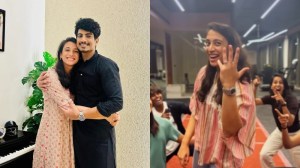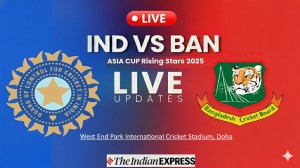Click here to follow Screen Digital on YouTube and stay updated with the latest from the world of cinema.
2013: Lunchbox, Kai Po Che, Queen gave us the stars and the stories
If I were to pick one film which changed the game in terms of a wider overseas release, it was Ritesh Batra’s Lunchbox, an unlikely romance between two lonely souls starring Irrfan Khan and Nimrat Kaur.
 A quick snapshot of Bollywood in 2013.
A quick snapshot of Bollywood in 2013.It was the year of Dhoom 3, the weakest edition of the franchise, starring Aamir Khan and Katrina Kaif. The latter danced like a charm; the latter was heavy and charmless, and the film was a dud. It is one of Aamir’s worst; the only one worse than this is yet another dead-on-arrival YRF production Thugs of Hindostan, and his own production Laal Singh Chaddha.
Shah Rukh Khan-Deepika Padukone romped nicely in Chennai Express, a Rohit Shetty film, perhaps the only one of the director’s that I’ve enjoyed, because it had these two fronting the fun and games, submitting to the silliness that this kind of film demanded.
Sanjay Leela Bhansali’s Goliyon Ki Ramleela had to be changed to Goliyon Ki Rasleela: this desi version of Romeo-Juliet, starring Ranveer-Deepika, was forced to go in for a name-change, a precursor to the Padmavati-Padmavat imbroglio — there have always been extra-judicial factors at play around cinema in India, but this was the beginning of an era of interference that shows no signs of slowing down.
 Ranbir Kapoor and Deepika Padukone in Yeh Jawaani Hai Deewani.
Ranbir Kapoor and Deepika Padukone in Yeh Jawaani Hai Deewani.
Ayan Mukerji’s Yeh Jawaani Hai Deewani is yet another Deepika film (2013 was quite the Deepika year), in which she switches from a ‘padhakoo-glasses-wali-doctor’ to a svelte creature while showing Ranbir Kapoor’s commitment-phobic fellow the error of his ways. This rom-com, which swung from ‘Balam Pichkari’ to ‘Badtameez Dil’, continues to nestle in a surprising number of millennial hearts. Sometimes tropes are trumped by good-looking leads, and foot-tapping music.
After his 2012 success with the remake of Agneepath, Hrithik returned with the third part of the Krrish franchise, and it was more of the same, with the bad guys — Vivek Oberoi and Kangana Ranaut– having all the fun: it was a big hit, but a fourth iteration never materialised.
In all these big-budget blockbusters, this bunch stood out– Queen, Kai Po Che, Madras Cafe, and Shudh Desi Romance.
Also Read | With Vicky Donor, Kahaani, Gangs of Wasseypur, Hindi cinema changed in 2012
Kangana Ranaut owned Vikas Bahl’s Queen, in which she plays a heartbroken West Delhi girl in search of self as she journeys across picturesque European spots. Its runaway success turned Ranaut into a bankable star, and she hasn’t bettered that virtuoso performance.
Abhishek Kapoor’s Kai Po Che, based on a Chetan Bhagat novel, was about three cricket-mad friends in Ahmedabad navigating the fissures caused by communal riots and natural disasters: it was Sushant Singh Rajput’s debut feature, with wonderful support from Rajkummar Rao and Amit Sadh, and great music: this rishton ka maanjha is still as watchable.
How good writing can be the best part of a film which never quite delivers on its promise of giving us a new-agey, modern romance is evident in the YRF-produced, Maneesh Sharma-directed Shudh Desi Romance. The delightfully life-like lines from Jaideep Sahni keeps everything going, even when Sushant Singh Rajput, yes, him again, Parineeti Chopra and debutant Vaani Kapoor sag-and-lag here and there.
 Sushant Singh Rajput and Vaani Kapoor in Shuddh Desi Romance.
Sushant Singh Rajput and Vaani Kapoor in Shuddh Desi Romance.
But if I were to pick one film which changed the game in terms of a wider overseas release, it was Ritesh Batra’s Lunchbox, an unlikely romance between two lonely souls arising out of a rare mistake made by Mumbai’s famed dabba-walas. It gave Irrfan one of his most flavourful parts, with Nimrat Kaur layering her tasty treats with love and care, and Nawazuddin digging in for his bite as well.
Also Read | Delhi Belly and Pyaar Ka Punchnama defined 2011 in the year of Zindagi Na Milegi Dobara, Singham and Ra.One
It was one of the first Indian films which did very well in foreign markets not primarily NRI-driven, and it broke the out-dated notion that Indian films were all song-and-dance wonders.
- 01
- 02
- 03
- 04
- 05


































